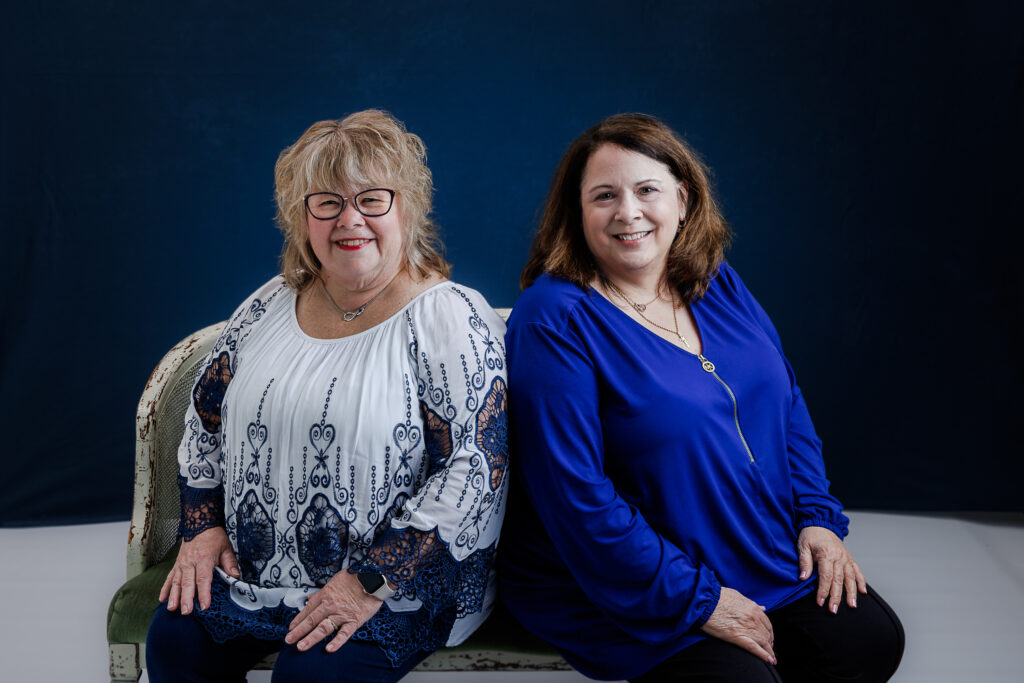Aging in place has become a popular option for older adults seeking to maintain independence and comfort in their later years. It continues to be one of the top Senior Trends for 2025. The idea is simple but powerful: staying in your own home, in the space you know and love, as you grow older.
For many families, this aligns with their loved one’s desire to remain in a familiar environment. But is aging in place always the best choice? The answer isn’t as straightforward as it may seem. This is often complex and several factors need to be considered.
Understanding the benefits and challenges of aging in place can help families make informed decisions about what’s best for their aging loved ones. For a look at the Free 10 Steps You Must Take to Care for an Aging Loved One, click HERE.

The Benefits of Aging in Place
Aging in place comes with clear advantages, which is why it’s such an appealing choice for many seniors and their families.
- Familiar Environment
Home is where memories live. Staying in a familiar space can provide emotional comfort and reduce feelings of anxiety or disorientation, especially for individuals in the early stages of cognitive changes like dementia.
Being in a familiar environment makes it easier and comfortable. Your aging loved one knows the surroundings and can instinctively maneuver around the house.
- Independence and Autonomy
Aging adults often value maintaining control over their daily routines. Aging in place lets them decide how their days are structured, giving them a sense of independence. Independence is the last thing an aging adult wants to give up.
- Stronger Connection to Community
Many seniors who age in place stay near neighbors, friends, and community groups they’ve belonged to for years or even decades. These connections can significantly reduce feelings of loneliness and contribute to overall well-being. These connections are often willing to help assist your aging loved one as their needs change.
- Cost Considerations
Staying in their own home can sometimes be more affordable than moving to an assisted living facility, depending on the level of care needed. While modifications and in-home caregiving services can add up, they may still cost less than facility-based care. This is a big “if”. You must weigh the amount of services needed vs the cost of other types of senior housing.
The Challenges of Aging in Place
While aging in place has its perks, it isn’t without its hurdles. For some seniors, the very things that make home a haven can turn into risks or obstacles.
- Safety Concerns
Aging adults may face increased risk of falls, injuries, or difficulty navigating stairs and cramped spaces. A home that hasn’t been adapted for aging can quickly become a hazard. Confusion or dementia can add to the safety risks.
- Isolation
If social connections diminish or mobility becomes limited, living alone could lead to loneliness and depression. What once was a community-centered lifestyle can shrink into an isolating experience. Social isolation is a real concern.
- Increasing Care Needs
Chronic illnesses or conditions like Alzheimer’s and Parkinson’s may require care beyond what family members or in-home aides can provide. A lack of access to round-the-clock assistance could be harmful in these cases. - Maintenance and Upkeep
Homes require constant care, from yard work to fixing appliances. Aging adults may find these tasks overwhelming, creating stress or even health risks if upkeep falls behind.
When Is Aging in Place the Right Choice?
Aging in place can be a viable path when the senior is relatively healthy, has a safe home environment, and access to the resources they need. Here are some factors to consider when making this decision:
- Home Safety Modifications: If home adjustments like grab bars, stair lifts, widened doorways, or walk-in tubs can be added, aging in place may be more feasible.
- Support Network: Regular visits from family or friends and having trustworthy caregivers nearby can provide the support needed to maintain a positive aging experience at home.
- Access to Healthcare: Seniors who live within a reasonable distance of medical facilities or doctors have a better chance of managing health conditions effectively while staying at home.
- Financial Stability: If the costs of in-home care, transportation, and modifications are manageable, it’s a more practical route. Financial considerations play a large role in choosing the best course. Whatever the decision, finances will need to be considered and planning is required.
When Should Families Consider Alternatives?
While aging in place works well for some, there are times when alternative care options may better meet a loved one’s needs. Families should be on the lookout for red flags, such as significant cognitive decline, frequent falls or unexplained injuries, signs of malnutrition, or unmanaged medications.
Assisted living, memory care, or even moving in with family may relieve burdens and give the senior a higher quality of life in situations where aging in place falls short. It’s also important to consider how the primary caregivers are coping. If caregiving becomes too overwhelming, exploring alternative solutions is not only wise but necessary for everyone’s well-being.
How Families Can Make the Best Decision
Decisions around senior care are deeply personal and often emotional. Open communication is key. Sit down with your loved one and discuss what they envision for their care and how they feel about changes to their living situation.
Engaging a nurse patient advocate can help evaluate your senior’s needs while providing you with objective guidance. It’s also wise to consult their healthcare team for insights and recommendations based on their physical and cognitive health.
Remember, there’s no one-size-fits-all solution. What works today might not work in a year or two, so be prepared to revisit the decision over time.

Final Thoughts
Aging in place can be a wonderful choice for seniors when the right infrastructure and support are in place. But it’s not the only option for a safe, fulfilling life as we age.
Families must weigh the benefits and challenges thoughtfully, balancing the senior’s preferences with practical considerations. Your aging loved one must be included in the decision making process. Consider learning more about all of our free resources to help you along this journey.
No matter what path your family chooses, the ultimate goal is to ensure your loved one feels safe, supported, has adequate socialization and loved. Whether that’s in their cherished home or a new one, the focus should always be on their dignity and quality of life.
Thanks for stopping by and spending a few minutes of your precious time with us. For new family caregivers we have a mini-course that will help you identify the needs and understand the appropriate resources needed to meet your aging loved one as their condition changes over time. You can learn more HERE.
Take care and see you back here soon,
Pam and Linda
Your Nurse Advocates
“Compassionate Care for Aging Adults, Peace of Mind for the Adult Children.”
Resources:
https://health.clevelandclinic.org/aging-in-place-home-modifications
https://www.healthline.com/health/aging-in-place
Aging in Place a Free Master Class by Your Nurse Advocate Consulting
Reverse Mortgages-New Insights
About the Authors
About the Authors
At Your Nurse Advocate Consulting, Pam and Linda’s mission is to empower aging adults and their families to take control of their health, prepare for life’s uncertainties, and secure their peace of mind. We are dedicated to providing compassionate guidance, personalized support, and expert resources to help our clients navigate complex medical needs and organize their personal affairs.
As independent patient advocates we have a steadfast commitment to clarity, family well-being, and empowerment, we strive to make a meaningful impact by ensuring our clients feel confident, prepared, and cared for every step of the way on their healthcare journey.
Expert Guidance You Can Trust
With over 80 combined years of R.N. experience navigating the complex healthcare system, we stand as trusted guides for seniors and their families. Our expertise ensures they can access the care and resources they need without feeling overwhelmed by red tape or confusion.







